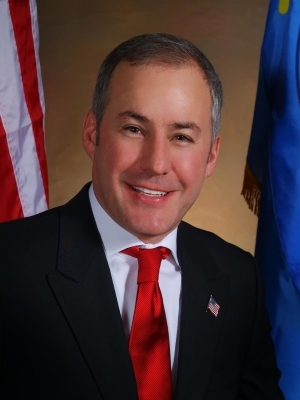The Michigan Municipal League has joined the National League of Cities in calling on the federal government for funding. | Pixabay
The Michigan Municipal League has joined the National League of Cities in calling on the federal government for funding. | Pixabay
Westland Mayor Bill Wild, vice president of the Michigan Municipal League, recently joined "The Frank Beckmann Show" on WJR radio to discuss the push by the organization to get COVID-19 financial assistance from the federal government for local municipalities in the state.
The league’s board recently sent a letter to leadership in Washington, D.C., stating that municipalities nationwide need $375 billion in direct, flexible federal aid, Beckmann said at the start of the show.
Wild told Beckmann that the Michigan Municipal League has joined with the National League of Cities in seeking the aid.

Westland Mayor William R. Wild
| CityOfWestland.com
“We’re taking this ask right to the White House,” he told Beckmann.
While there has been direct federal aid to businesses and other organizations in larger communities, Wild told Beckmann that the League feels it’s time to have direct aid to the municipalities that are struggling to deal with the revenue shortfalls and added costs of COVID-19.
"I know the states are asking for funding, but I’ve been around long enough to know that when that money goes from the federal government to the state, it doesn’t necessarily trickle down to the communities where it’s needed the most,” Wild told Beckmann.
Municipalities are in need of funding simply to continue regular operations, Wild said.
“In Kalamazoo, they’ve had to lay off 165 employees. In Westland, we’ve had 65% of our nonpublic safety employees on furlough, and the city of Detroit’s got a 20% shortfall,” Wild told Beckmann.
The National League of Cities is estimating that Michigan communities will have a tax revenue loss of 37%.
"Cities like Westland, we depend on those summer tax bills that just went out; that’s our main funding source for the year,” Wild told Beckmann. “We expect those that have maybe escrow accounts, that they’re going to be able to pay their summer taxes, but a lot of residents, a lot of businesses, I think they’re really going to struggle making those tax bills.”
With the addition of cuts to state-shared revenues, Westland is expecting it may lose approximately $4.5 million the city would normally receive from the state, Wild told Beckmann. While the city has $6 million in its rainy day fund, it could end up draining two-thirds of that just to make up the shortfall in state funding.
And other communities may not be as well-prepared in terms of rainy-day fund assets as Westland is. “At the end of the day, it’s just not sustainable,” Wild told Beckmann.


 Alerts Sign-up
Alerts Sign-up